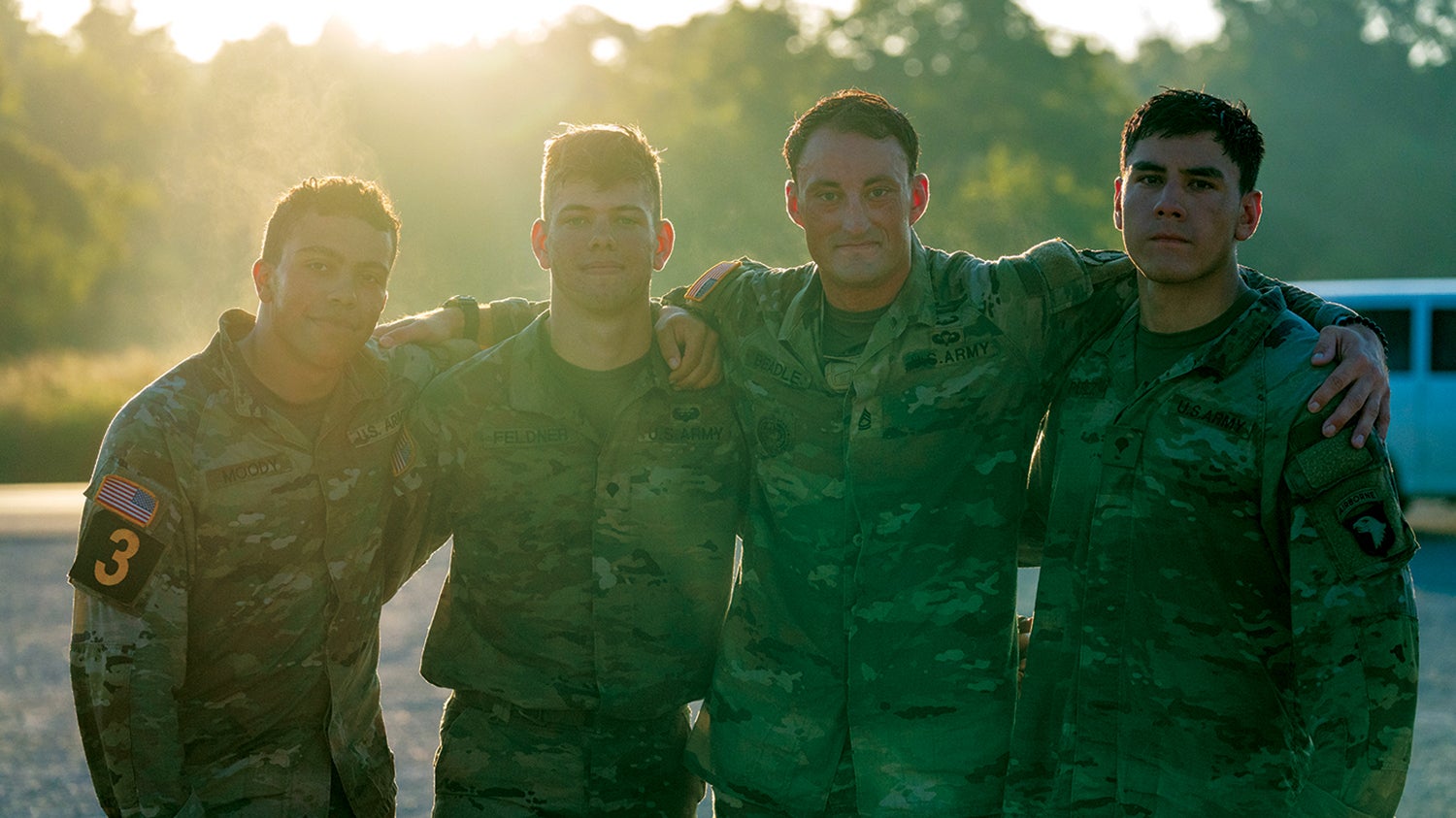My first Army assignment was with the 187th Infantry Regiment, 101st Airborne Division, at Fort Campbell, Kentucky. I was a 17-year-old paratrooper, a private first class, and the NCOs in my unit were, for all intents and purposes, my adoptive parents.
I listened closely to what they had to say and watched everything they did. They were for me what “right looks like.”
The father figure of my new Army family was Sgt. 1st Class Zop. Zop was my first role model and mentor. We didn’t know his first name, because we were not authorized to know. As far as we were concerned, his first name was Sergeant. He taught me and my cohorts a lot about the Army and life in general. I can still hear him saying, “Leave it better than you found it.”
In the Field
We spent a great deal of our time training in the field. We were an 81 mm mortar gun crew. I started as the ammunition bearer and worked my way up to the gunner position.
The mortar platoon consisted of three gun crews, a fire direction center and a forward observer. The forward observer was up front looking at the target, calling for and adjusting fire. The information the forward observer sent to the fire direction center was converted into data that could be applied to the guns. The gunner would receive the fire command and was responsible for placing the data on the gun sights and firing the mission. During my assignment with the unit, I held every job in the platoon.


In training, we would fire the guns and move out quickly, because by firing, we gave away our position. The “enemy” now knew where we were, and it was just a matter of time before we started receiving counterbattery fire.
The last thing we did before moving was sterilize our position. We would leave no evidence we had been there, and that included picking up trash that was already there when we moved in; trash that was left by some other unit.
Voice of Authority
“Leave it better then you found it,” was what Zop required before we were allowed to evacuate. That stuck with me during my 32-year Army career. I can, to this day, remember the sound of his voice—the voice of authority.
I internalized his directive and took it to another level. Every assignment, every job, every leadership position I had during my military career, my objective was to make each unit better during my tenure. I was not trying to revolutionize, reorganize or redefine the unit. My goal was to simply pass it on to my replacement better than I found it.
That also applied to training soldiers. I was not under the illusion that I was creating supersoldiers. I just wanted to train them to be better soldiers and leaders, and, by extension, increase readiness to build a better Army. I just wanted to make a difference.
I was following the orders of my mentor: “Leave it better than you found it.”
____________________________
Your Essay Matters
Mentoring Matters, this new ARMY magazine section, focuses on mentorship, a time-honored practice of one soldier sharing personal and professional guidance with another.
You can submit your own essay to run in a future issue. Essays should be 500–800 words. Please email essays and any relevant photos to armymag@ausa.org
____________________________
* * *
Command Sgt. Maj. Jimmie Spencer, U.S. Army retired, held assignments with infantry, Special Forces and Ranger units during his 32 years of active military service. He is the former director of the Association of the U.S. Army’s NCO and Soldier Programs and is an AUSA senior fellow.

